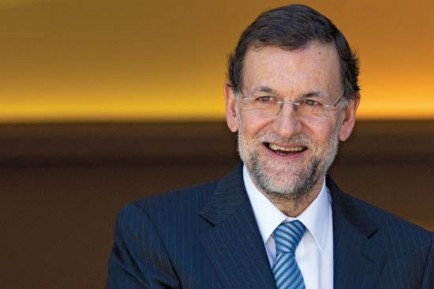
Spanish PM Mariano Rajoy has set the date for the General Election as December 20.
Spanish Prime Minister Mariano Rajoy has formally dissolved parliament this week as the country buckles down for the forthcoming General Election, now officially called for December 20.
In signing the decree to dissolve parliament as is tradition, Rajoy took the opportunity to remind voters that, despite the tough years of the Popular Party’s (PP) time in office, Spain’s economy has been transformed from one of Europe’s bleakest to one of its brightest…
Since taking office in 2011, Rajoy has made great strides in fulfilling his pre-election promises to lower unemployment and spur economic growth. Four years ago Spain had Europe’s highest levels of youth unemployment at more than 50 per cent, while unemployment generally peaked at 27% in 2012.
While the jobless rate remains high at around 21.2%, the government’s labour reforms have had the desired effect of bringing more and more Spaniards into work, particularly over the past 18 months. During that time the country has gone from almost requiring a Eurozone bailout to posting GDP growth figures of above 3.4% in 2015, with even stronger growth forecast for 2016.
In terms of job creation, Spain now leads the way in Europe, adding more new jobs this year than any other country on the continent. This upturn, Rajoy hopes, will convince voters to re-elect the PP on the promise of even more steady growth and recovery.
However, polls show that there are two serious challengers to the ruling party: the far-left Podemos (We Can) party, and the centrist Ciudadanos (Citizens) party, which could shake up the current two-party system. The opposition Socialist party is extremely close in the polls with the PP, and one of these two main parties is likely to have to strike some sort of coalition deal with one of the two newcomers.
 en
en



 Vlaams-Nederlands
Vlaams-Nederlands
0 Comments
Leave a Comment
DISCLAIMER
The opinions and comments expressed by contributors to this Blog are theirs alone and do not necessarily reflect the views of VIVA Homes Under the Sun Ltd, any of its associated companies, or employees; nor is VIVA to be held responsible or accountable for the accuracy of any of the information supplied.
Have you got something to say?